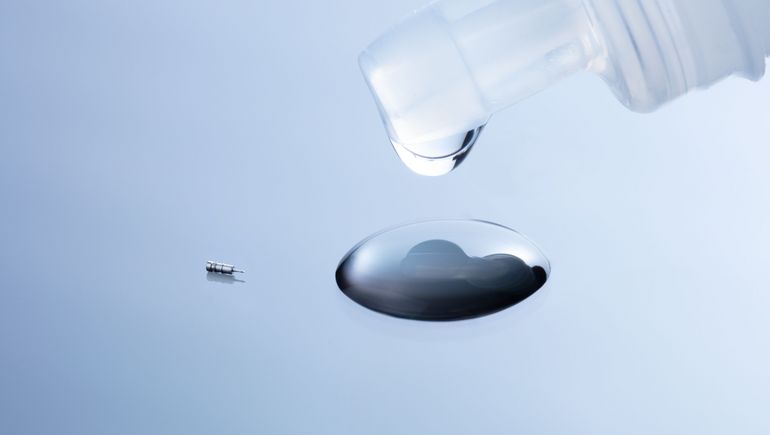Dive Brief:
- Glaukos Corporation received Food and Drug Administration approval for a drug-releasing implant that is designed to reduce intraocular pressure in patients with ocular hypertension or open-angle glaucoma. The implant was approved for single administration per eye.
- The device continuously delivers a formulation of travoprost, an established treatment for high pressure in the eye, to provide patients with an alternative to eye drops and remove the risk that noncompliance with the treatment regimen will affect outcomes.
- Glaukos failed to secure approval for repeat dosing but plans to work with the FDA to change the label. The wholesale acquisition cost (WAC) is $13,950 per dose, or implant, well above analysts’ expectations. William Blair analysts estimated the price would fall in a range of from $3,000 to $4,000 per implant, while BTIG analysts said they modeled a price of $5,000.
Dive Insight:
Glaukos expects to generate up to $310 million in revenue this year from a portfolio of eye disease products that includes a corneal cross-linking procedure for treating keratoconus and a micro-stent glaucoma therapy. The company has worked for years to add the iDose TR sustained release implant to its portfolio, posting phase 2b data in January 2021 and following up with results from a pair of phase 3 studies last year.
The implant is anchored into a part of the eye and gradually releases a highly concentrated formulation of travoprost to provide continuous treatment for high ocular pressure for up to three years.
Glaukos’ share price climbed 25% to $75.74 when the market closed on Thursday. William Blair analysts said the implant should be the company’s “most successful product in its history and should revolutionize how glaucoma is treated by addressing noncompliance with drops,” in a note to investors.
However, “the label wasn’t perfect as some had hoped,” BTIG analysts wrote in their report. The key concern with the label is a ban on readministration of the device. Patients can only receive one implant per eye.
Glaukos CEO Tom Burns discussed the label Thursday on a conference call, telling investors the company plans to get the readministration restriction lifted.
“I think when it came down to it, it was the conservatism of the FDA which ruled the day and gave us this initial label,” Burns said. “We’re already actively hard at work in constructing a logical and compelling argument for moving forward to broaden our ability to reimplant this device. The good news is given the duration of the iDose itself, at two to three years, we have time.”
Joe Gilliam, Glaukos’ chief operating officer, told investors on the call that the restriction will have a “very limited impact in the context of the commercial dynamics as we think about them in 2024, 2025, and, quite frankly, probably even well into 2026.”
BTIG and William Blair analysts cited the higher-than-expected WAC as a positive counterpoint to the readministration restriction. Ahead of the approval, analysts estimated Glaukos would charge $3,000 to $5,000 per implant. The company justified its decision to charge several times that amount by comparing the per-year cost of its product to the annual prices of other eye disease treatments.

